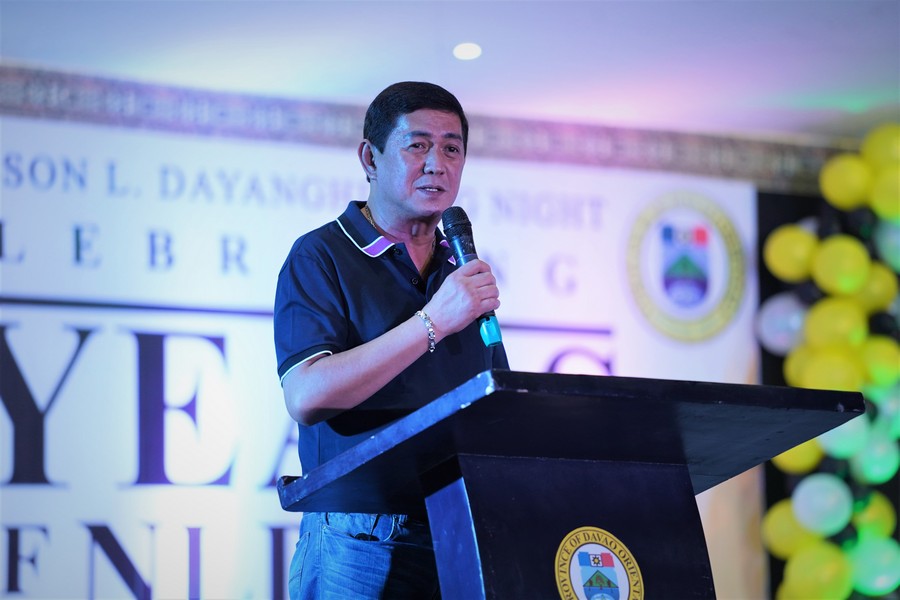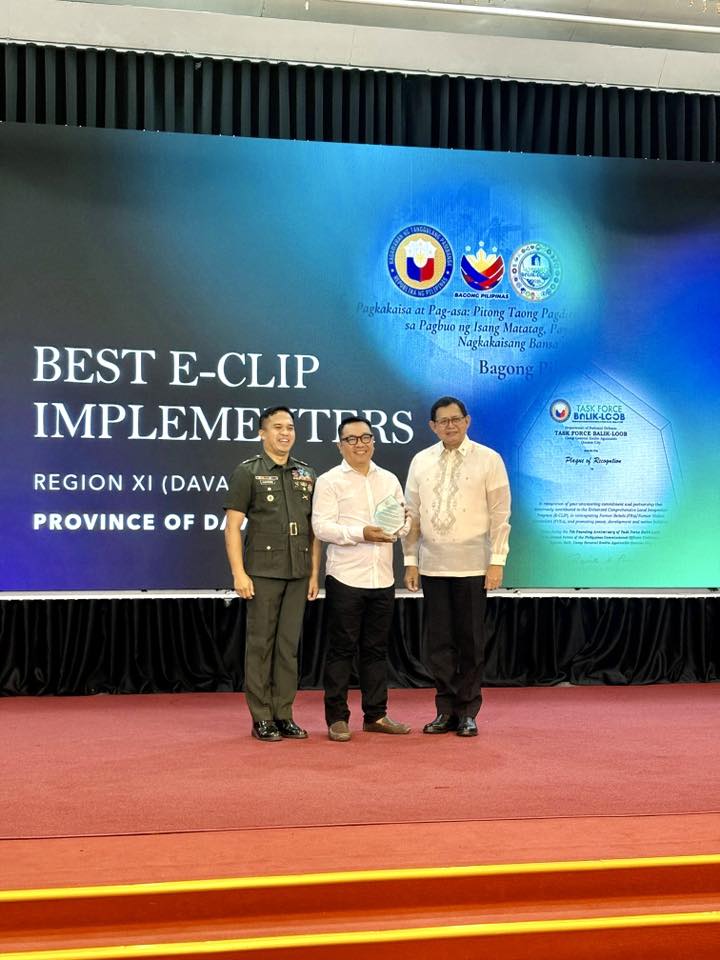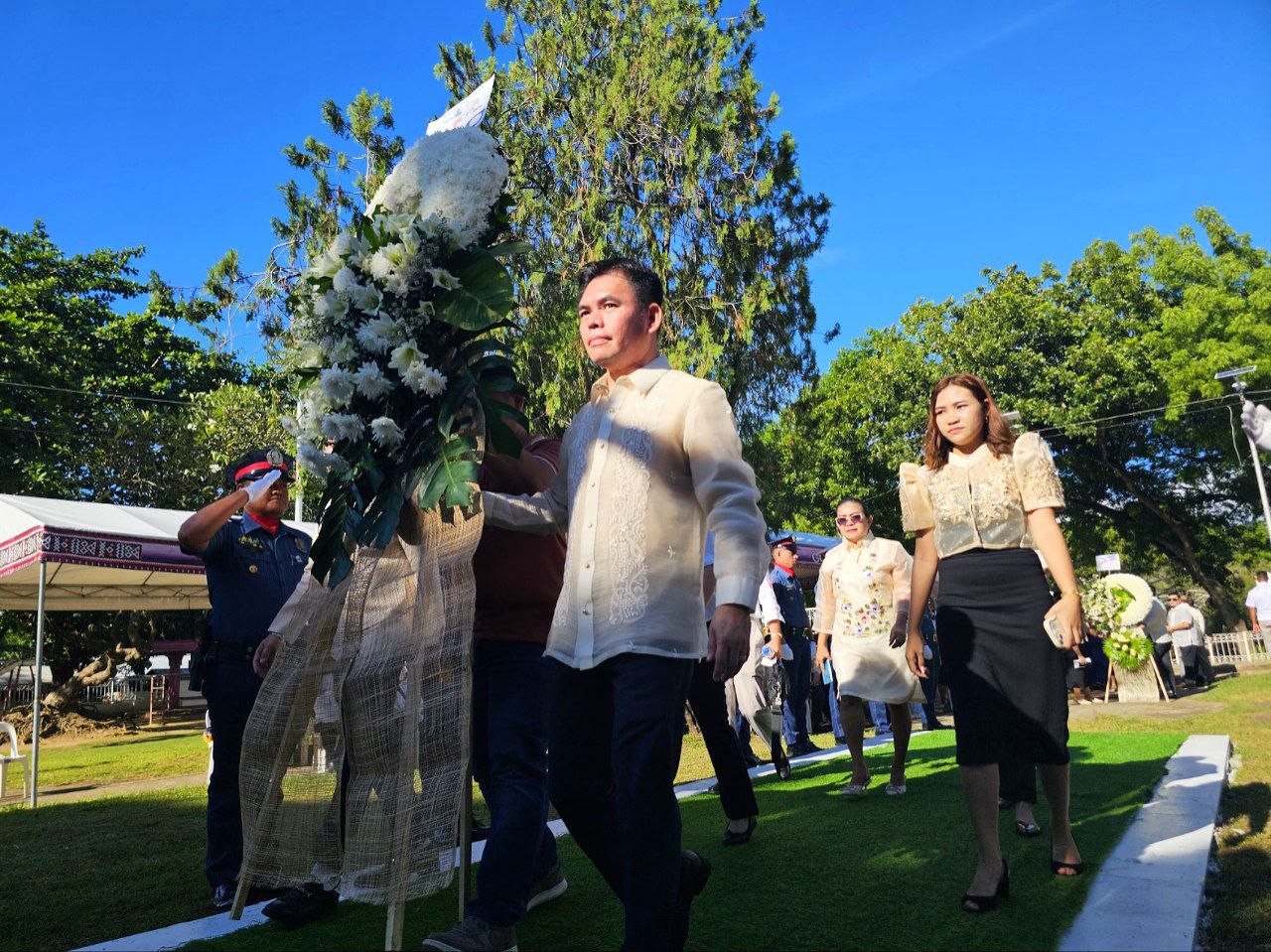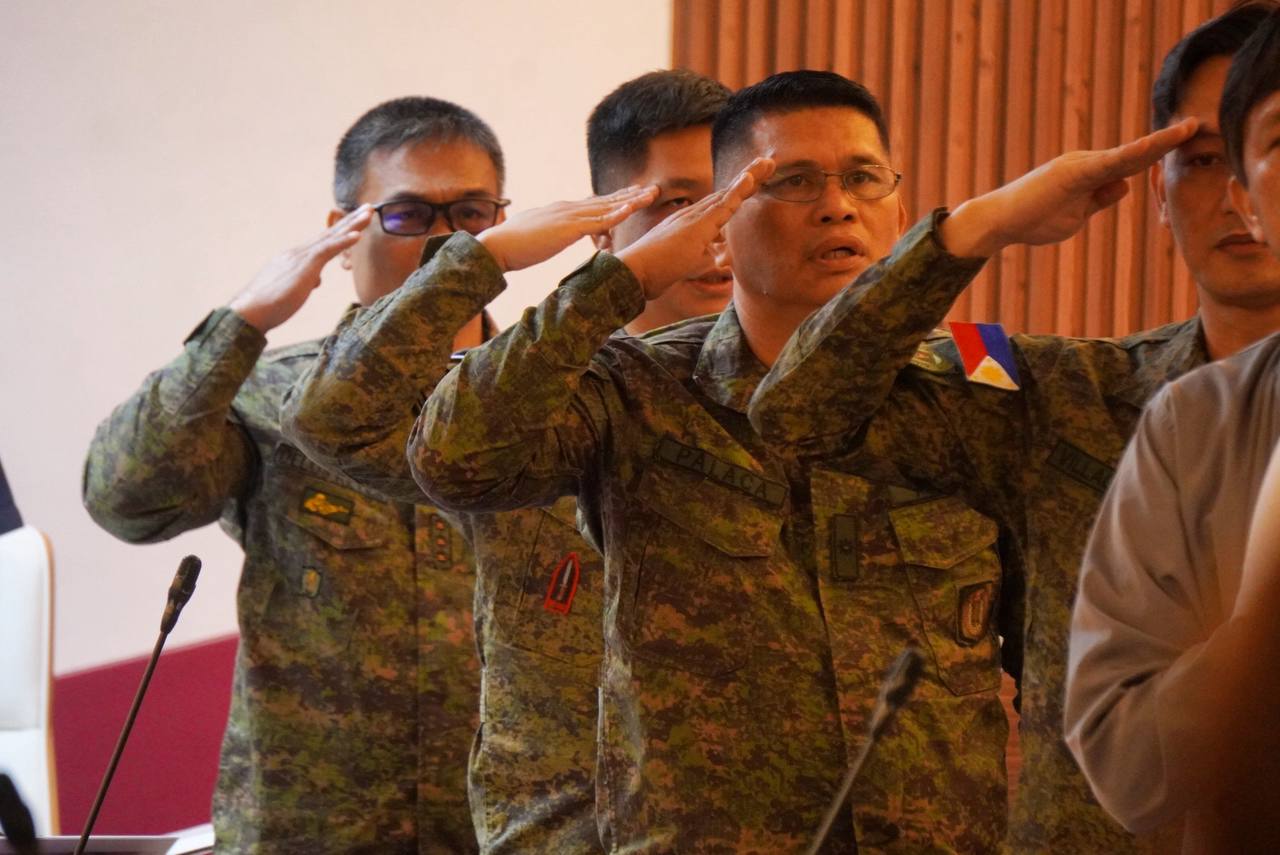City of Mati Davao Oriental — Before leaving the Governor’s office in June this year for the uncontested congressional seat in the First District of the province, Governor Nelson Dayanghirang says his huge and meaningful investments for his flagship peace and development programs and projects is paying off big time that resulted in a paradigm shift in the role of the local government unit from being a service provider to that of a maker of an enabling environment for the communities to grow and prosper.
Governor Dayanghirang was off to a good start in 2016, the year he first assumed the governorship of the province armed with an overwhelming mandate from the people. The young and highly energetic Governor Dayangirang stressed that public servants like him “should always take the challenge to continuously live up to our commitments to the people. Let us give the best public service we could offer by implementing programs and projects that will enable everyone to partake in our economic growth. We must continue to pursue highly innovative solutions to longstanding and new emerging challenges.”

In successfully kicking off the implementation of his flagship program dubbed as Nagkakaisang Lingkod-Bayan ng Davao Oriental – Barangay Outreach Caravan (NLD-BOC), the Governor has clearly pointed out his highly ambitious goals of empowering the poor and disadvantaged and let them reap the full benefits of growth and development. Often, he stressed the need to be more innovative and be able to fine-tune strategies to attain the province’s development targets. Determined to make a lasting and relevant difference after five years of successfully pursuing his programs and projects, Governor Dayanghirang’s administration has opened up vast opportunities for many of his constituents, encouraging huge investments in key areas, and strengthened the adaptability and resiliency of his people.
The provincial government often work with scarce resources but Governor Dayanghirang’s administration is driven by a sense of purpose. That is why it is undertaking highly innovative programs and projects that it believes can dramatically change the lives of the people. The NLD-BOC is treading paths less travelled, but one thing is sure: it is definitely redefining local governance and development.

Seeking to foster greater inclusiveness and maximum participation in growth and development, the Governor’s flagship program on peace and development aims to reintroduce the government by bringing government services closer to the people. Knowing that the strength of the provincial government is limited, the Governor developed the local development strategy which banks on unity and convergence among all key players. Hence, as partnership become an important feature and highlight in Davao Oriental’s development direction, the Governor expanded and deepened collaboration with government agencies, local government units, and civil society organization and the private sector.
The NLD-BOC program is designed to facilitate the following objectives:
1. Enable participatory governance, direct involvement of local government units and other stakeholders in the whole process of formulating plans, implementing, monitoring and evaluation of all activities conducted through the program.
2. Enable convergence, unification, integration and full utilization of institutional, material, financial and manpower of all the key facilitators particularly among National Government Agencies (NGA), Non-Government Organizations (NGO), People’s Organizations (PO), Financial Institutions (FI) and the Private Sectors (PS)
3. Integrate education with provision of tangible materials to beneficiary communities.The program encompasses all of the 183 villages in the ten municipalities and one city of Davao Oriental without prejudice to target beneficiaries’ age, religion, sector, economic class, political leaning and other modifiers. The Governor stressed that rather than just passively staying in comfortable offices at the Provincial Capitol, it is best to institutionalize a pro-active approach of reaching out to the isolated, marginalized and under-served constituents.
“Being in the local government, we are always on the ground, looking into the eyes and hearts of the people we are here to serve. It teaches us to listen, it teaches us to be expansive in the people whom we talk to. As public servants, we have the unique privilege of directly engaging with the people, and we learn from them first-hand what they need and how we could help in improving their lives,” says Governor Dayanghirang.
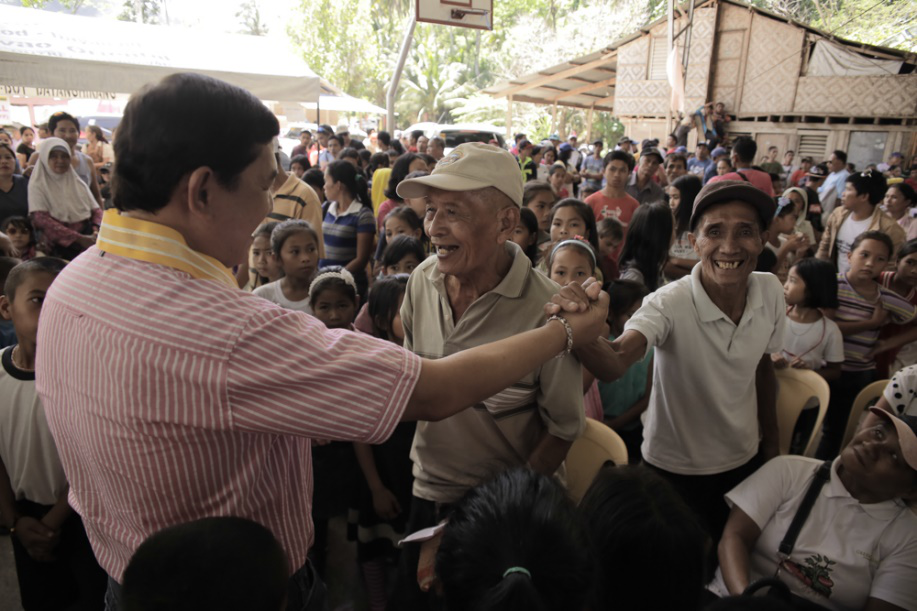
In implementing his flagship program, the provincial government forged a strong collaboration with peace and development partners from the national government agencies, the private sector and civil society organizations. Each of the participating agencies are pooling its resources such as logistics and transportation costs, thus maximizing government funds and resources. The program has provided vital services such as medical and eye check-up, dental services, minor surgery, health and life insurance registration, processing of legal documents, livelihood seminars and employment services, among many others. Free goods like medicines, planting materials, farming tools, school supplies and food packs were also distributed to the communities. The program has also become a perfect venue for holding advocacy campaigns on anti-drug abuse, road safety, environmental protection, disaster preparedness, and countering violent extremism which targets the youth sector who are most vulnerable to radical influences and recruitment due to peer pressure and the influence of social media.
IMPACT OF THE FLAGSHIP PROGRAM
Governor Dayanghirang strongly believes that when people’s basic needs are met, there will be no reason for them to join the rebel group and rise against the government. With many people in the province now warmly embracing the Governor’s flagship program, young children especially those living in Communist insurgency-stricken hinterland villages has now become friendly and welcoming to government troops and police who accompany the personnel of participating government agencies, an indication that the program has succeeded in winning the hearts and minds of the people affected by the long-running Communist insurgency. The Governor says the program shows the other side of governance to the rebels and their sympathizers like compassion, understanding and patience rather than running after them in offensives. During the caravan in the villages, the government foster community dialogues and introduce community-owned projects in the hope to create communities of peace. Moreover, the caravan also served as an eye-opener for the local government officials as they see first-hand the poor condition of roads in the villages. As a result, the provincial government crafted the Provincial Road Network Development Plan to prioritize the construction and improvement of the road network to connect conflict areas with the rest of the community. Without access, the basic services will not reach these areas where the poorest of the poor in the province lives. Thus, many new roads are being carved out and the people are happy because it significantly shortens travel time from their remote villages to the commercial centers where the farmers market their agricultural produce. More importantly, the caravan and the vital road projects in conflict areas in the province has forged a good relationship between the government and the residents, and it has planted the seeds of trust that had long been missing in the communities. The new roads plus the healthy relationship paved the way for other aspects of development to enter especially in the conflict areas. As the people now enjoy a warm relationship with the government, the flagship program is bringing them closer to the support services bankrolled by the national and local governments such as farmer training and a host of other livelihood programs and projects.
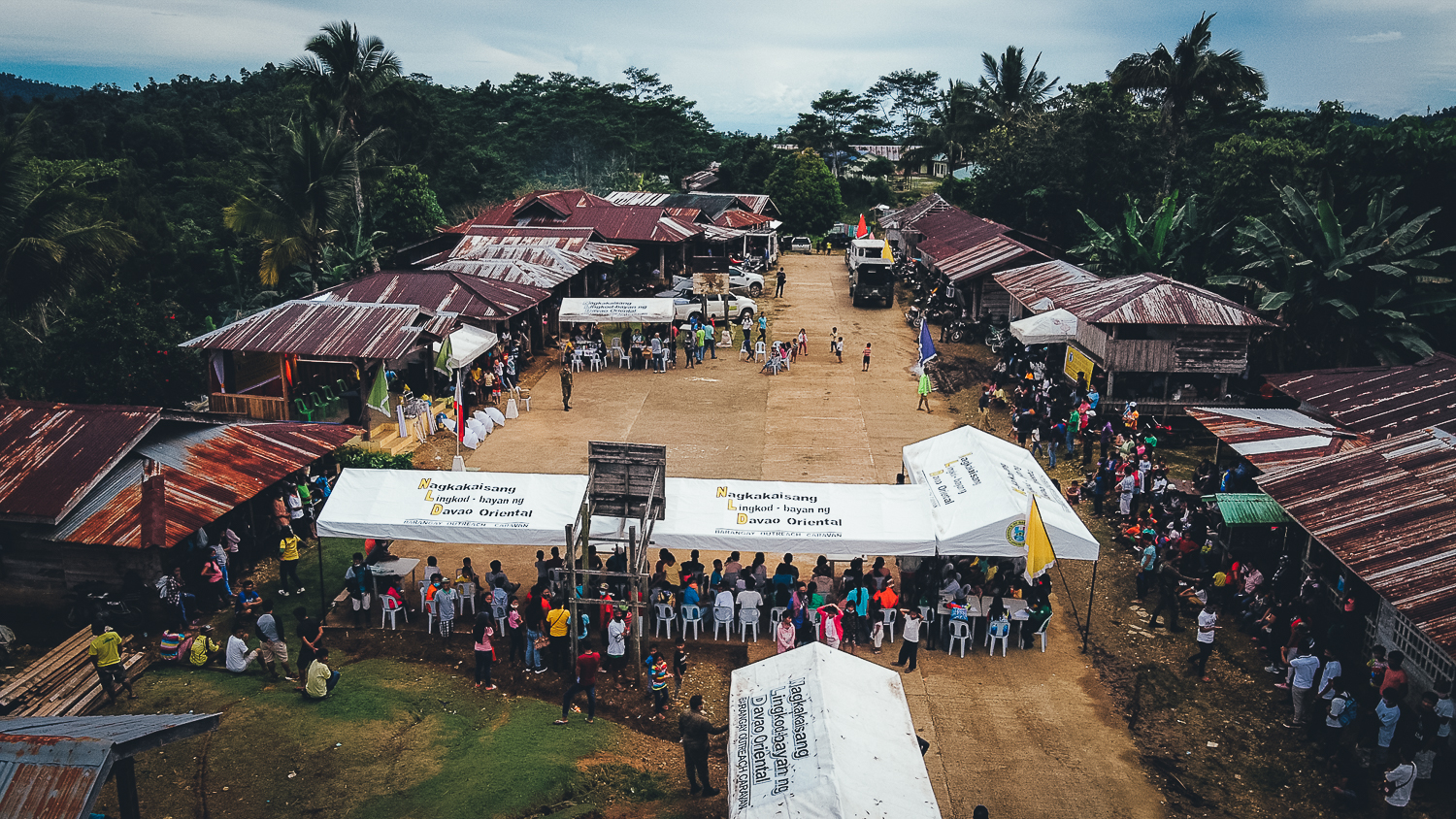
Greatly inspired by the flagship program’s successful implementation since 2016, hundreds of the Communist New People’s Army rebels, including their civilian supporters, were enticed to leave the armed struggle and surrendered to the government in exchange for a huge financial assistance and a host of other benefits, among them free housing, education and livelihood programs. They are being temporarily accommodated in a halfway house called “Happy Home,” a provincial government-run facility that helps rebels in transition to civilian life. Governor Dayanghirang has welcomed the mass surrender of the NPA rebels and its civilian supporters, saying the best way to achieve lasting and meaningful peace is to have the very people who spent their lives fighting the government finally lay down their arms and embrace the opportunity to live more meaningful lives as productive citizens. The ideology that stoked the rebel movement for fifty years has led to the impoverishment rather than development, further depriving those who were enticed to join the insurgency the promise of a good life. The ideology that promised a government for the people, equality and justice, only promoted extortion and harassment. Because of the Governor’s successful implementation of his flagship program, a huge number of rebels were inspired to return to the fold of law. The government has implemented programs that extended social assistance to surrendering rebels such as housing and livelihood to support local peace efforts. The government has integrated its inter-agency efforts to provide social interventions to the surrenderees through intensified linkaging of the Comprehensive Local Integration Program (CLIP) of the DILG, the Payapa at Masaganang Pamayanan (PAMANA), and other programs of different government agencies for former rebels under the Enhanced CLIP. The government is ensuring that the former rebels are provided safety and security guarantees, support for healing and reconciliation, legal assistance for those with pending criminal cases, and loan and market access for enterprising former rebels. Under the E-CLIP, the DILG has released livelihood, immediate assistance, and firearm remuneration to former rebels. The National Housing Authority has released the Certificates of Entitlement to former rebels, while the TESDA has provided skills training and DOLE, through its Integrated Livelihood Program, has provided cash assistance for business starter kits to former rebels in Davao Oriental.The Governor’s successful implementation of his highly innovative flagship program has earned the province numerous highly prestigious good governance awards from the national government, particularly from the Department of the Interior and Local Government that extended hefty financial rewards to the province for its outstanding good governance practices.
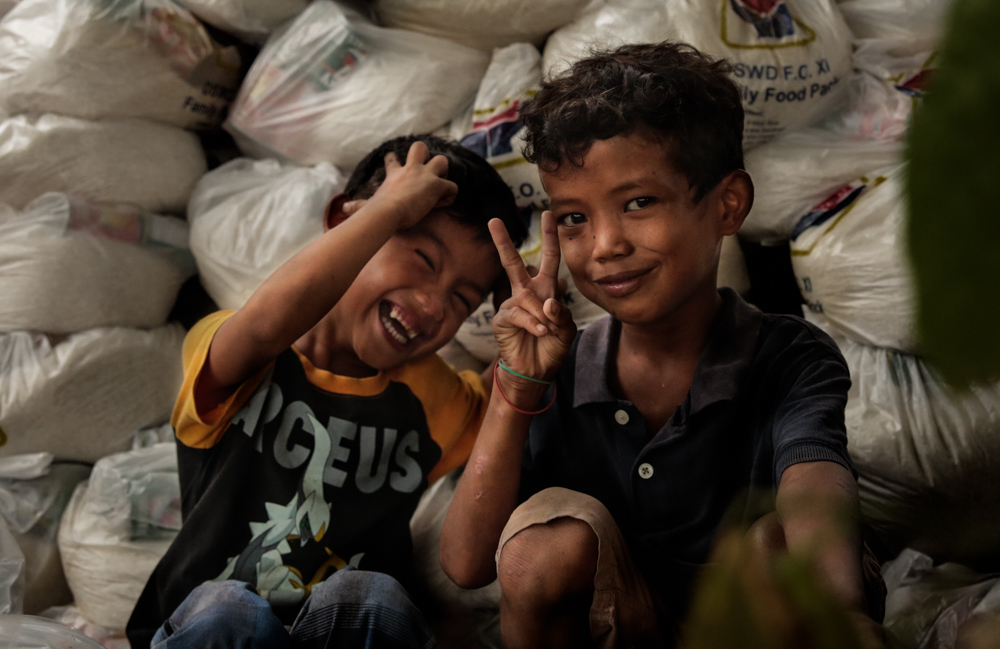
“Now, the people told me that they are grateful to high heavens for an answered prayer. Finally, after years of hoping, they would now be able to enjoy the benefits of new concrete roads and electricity, most especially the many benefits of a safe and potable water systems that we have put up all over the province. Many people in the province now enjoy the sweet benefits of good sanitation and proper hygiene. They now have access to proper waste disposal which will ultimately lead to the prevention of diseases. They can now go about with their daily activities without the fear of acquiring water-borne diseases. The establishment of so many water systems in the province also boosted the production of goods in the farming villages. Many people are now more engaged in their livelihood as the water systems supplies them with the adequate water they need,” says Governor Dayanghirang.

“By touching base with the grassroots and engaging with them will not only touch the lives of our people and the communities, it will also make them active participants of change rather than mere recipients or beneficiaries of programs and projects. That would ensure the people are co-owners of that change. At the end of the day, what is more important than actual change itself is its sustainability which will only be possible if people are made an integral part of the process from the very start. And we really have to raise our standard a notch higher because the challenges of good governance become even more demanding and difficult. We shall continue to engage our people in successful multi-sectoral partnerships as a means of addressing specific challenges. We make transparency and accountability something that the people can exact from their local government periodically and systematically. We will continue to strive for excellence in governance and leave a lasting imprint to the lives of our people we serve,” says the Governor.As he will soon reach the penultimate year of his term as Governor of the province, the administration of Governor Dayanghirang has achieved mixed results in its sector-specific targets set at the beginning of his term. But his administration remains on track as it take stock of the gains they have already achieved. And with the remarkable accomplishments of his administration, Governor Dayanghirang says that the journey to achieving his administration’s ambitious goals is long and difficult and that the challenges to encounter becomes more complex amid constantly changing environment. The past five years have been a testament that, indeed, no leader, however strong, can succeed at anything of greater importance unless he has the support and cooperation of the people he is tasked to lead and sworn to serve. By Ferdinand Zuasola | Photos by Mark Oliver Alvite

